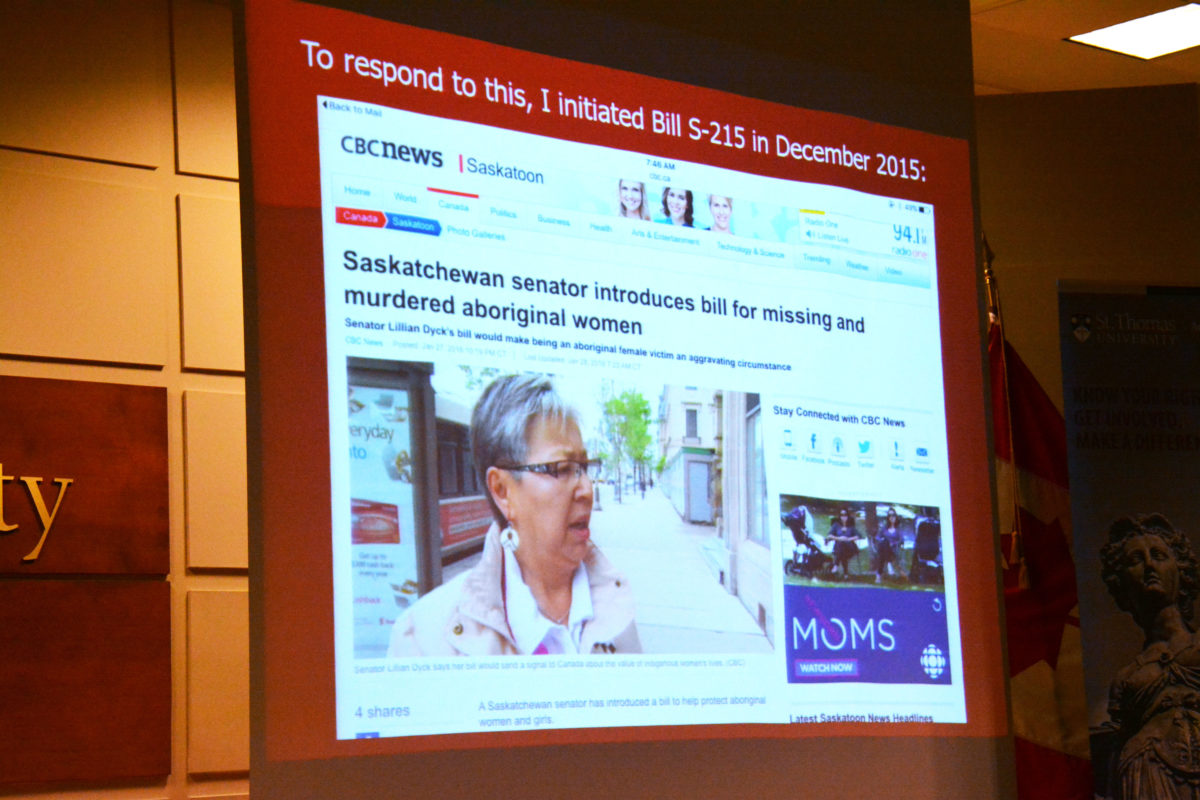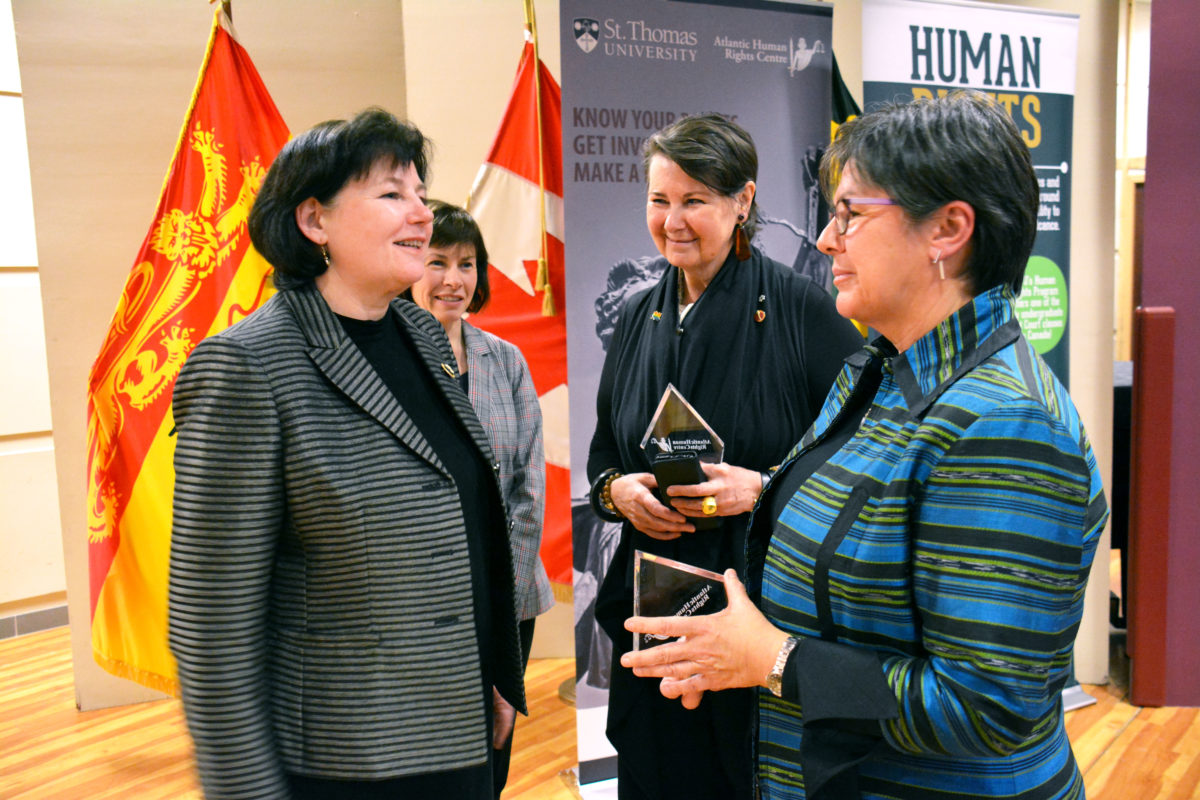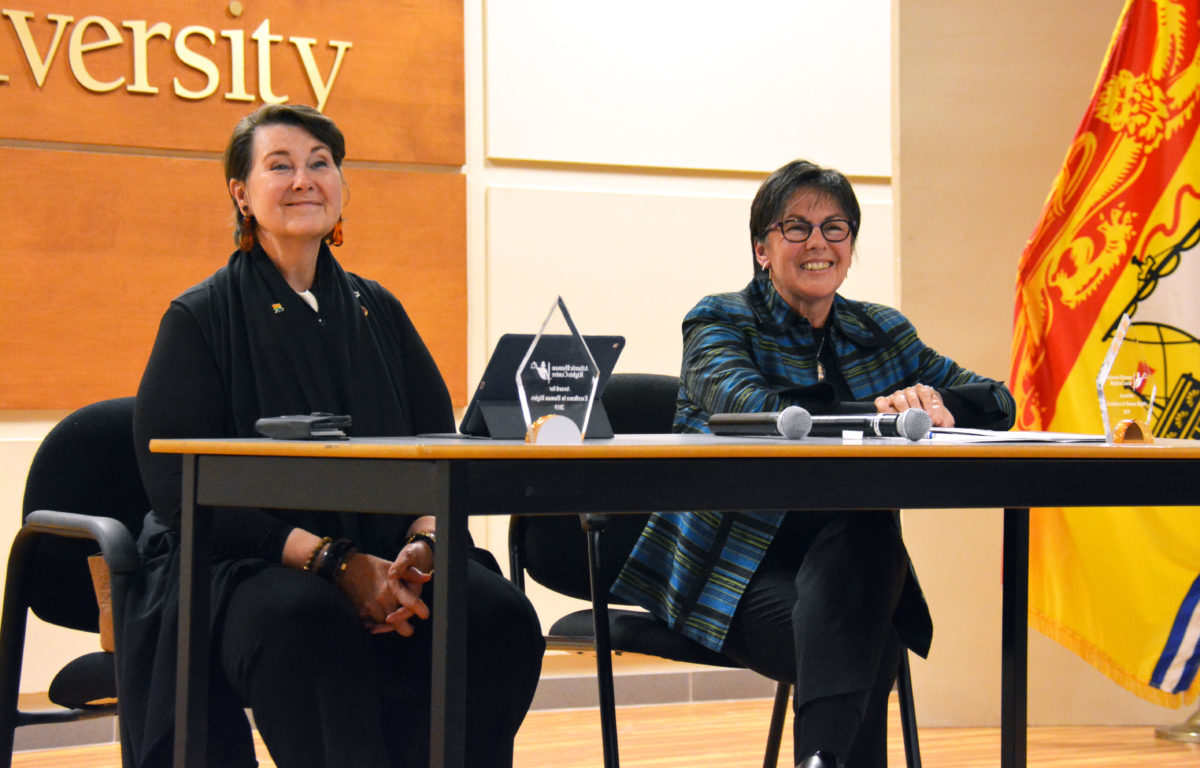In Saskatchewan prisons, 98 per cent of women incarcerated are Indigenous, and statistics throughout the country are not far off.
Senator Lillian Eva Quan Dyck, Senator Marilou McPhedran and Senator Kim Pate spoke about the state and importance of Indigenous women’s rights in Canada at the Lodhi Memorial Lecture in Human Rights at St. Thomas University on Jan. 23.
As part of human rights week, the panel discussion outlined the struggles Indigenous women face within the prison system, the legal implications of hate speech and how human rights protection for Indigenous women applies in practice.
“The fastest growing prison population is poor, Indigenous women, who have previously been victimized, sexually and physically, likely been in the child welfare system, likely started to anesthetize themselves at a young age with drugs and alcohol because there were no other interventions,” said Pate.

Senator Lillian Eva Quan Dyck, a first generation Chinese Canadian and Gordon First Nation member, has worked toward legislation to change the treatment of Aboriginal women in Canada. Under Bill S-215, Dyck amended both section 239 and section 273 of the Criminal Code of Canada in 2015. Dyck’s amendment reads “it shall consider as an aggravating circumstance the fact that the victim of the offence is a female who is Indian, Inuit or Métis.”
“Male violence aimed at Aboriginal females is more frequent, more brutal, and more severe than it is for other women,” said Dyck.
Basic rights in Canada derive from the Canadian Charter of Rights and Freedoms. Senator Marilou McPhedran studies the relationship between free speech and the tolerance of hate speech in Canadian society.
Seeking to find out what qualifies as hate speech, McPhedran used the example of Independent Senator Lynn Beyak. Former conservative Senator Beyak posted her views of Indigenous peoples on a senate Facebook site.

“On April 5th, 2017, ‘I feel that the First Nations people should be grateful there was such a service or system in place for their benefit. Where would they be today if it were not for the residential school that set-up to help them. I expect they would still be living out in their isolated villages, uneducated, a very high-rate of childbirth deaths, very short life expectancy, living in very damp cold dwellings,’” read McPhedran during the panel.
Senator McPhedran asked the audience if this statement qualifies as hate speech. Multiple students answered, saying it wasn’t a fair comment to make and the Senate of Canada should remove the message.
Senator Kim Pate is an avid defender of Indigenous women’s prison rights. She stressed the importance of banning solitary confinement and segregation.
“Segregation in prisons is also status. By law, you can be segregated if you are separated from the general population, and therefore don’t have access to programs, don’t have access to recreation, don’t have access to visits, don’t have access to all things, that if you are in the general population, you would have access to,” said Pate.

McPhedran and Pate were presented with the Award for Excellence in Human Rights. All three panelists advocated that legislature continue to change how it operates for the betterment of Indigenous women in Canada.
Elizabeth Tuck, a human rights student at STU attended the panel discussion. She said she thinks having women in politics is crucial.
“The reality of having three female senators accessible to the STU population is kind of a novel thing, and you don’t often have that sort of direct access to senators.”

